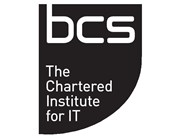Creating a ‘clinical satnav’ for doctors will save lives, say digital health experts
Published: 22/06/2022
 Providing better computerised advice for routine medical decisions will save lives and help to solve problems like over-prescription of antibiotics, according to a new report by the professional body for IT.
Providing better computerised advice for routine medical decisions will save lives and help to solve problems like over-prescription of antibiotics, according to a new report by the professional body for IT.
Computer-driven support for diagnosis and other clinical decisions must become a mainstream part of the NHS, according to BCS, The Chartered Institute for IT.
A ‘clinical sat-nav’ at the doctor’s fingertips could guide them on which tests to order, evaluation of the results, possible diagnoses, and produce options for care and treatments.To achieve this requires accurate, standardised, computable forms of clinical guidance and systems that must be able to talk to each other across the UK.
Lowering the use of antibiotics by better application of antibiotic guidelines is one of the key areas where this computable knowledge can transform healthcare, the BCS paper explained.
Dr Philip Scott, Chair of BCS Health and Care which commissioned the report, said: “Tech is vital to the NHS so we need to invest in the infrastructure and new ways of working for computable knowledge to be used to its full capacity.
Computer-driven, healthcare decision support already exists to a limited extent, but we must catch up with other fields. In banking, shopping and travel, computational support for personal and expert decision-making is commonplace and often seamless. Peoples’ needs are understood so intimately that there’s little difficulty recommending suitable films, food and holidays for them.
Britain is a leader in health research, with a growing community of digital health experts who are proud to belong to a vital and dynamic profession. The great opportunity now is for clinical research to produce computable knowledge that can be used immediately in computer-driven decision support, with the unique chance to transform patient outcomes and how doctors work.”
A connected system of computable knowledge will take years off the time between research findings being published in journals to when they get adopted into clinical practice, the study argues.
In the UK, important initiatives in this field are now underway by NHS England, Health Education England, NHS Scotland and NICE, said Dr Scott, who is a Programme Director at University of Wales Trinity Saint David.
The report, ‘Building a Clinical Satnav for Practitioners and Patients’ calls for those programmes to accelerate and move forward collaboratively. The paper outlines the challenges to overcome - technical, cultural, institutional, financial and strategic - for shifting research and healthcare systems into both creating and using computable knowledge.
It also highlights areas where computable knowledge and decision support would help healthcare professionals to reduce errors, enhance safety and quality.
This new report focusses on clinical knowledge and follows the recent Goldacre review, commissioned by the government, which made a range of recommendations on how the NHS can better use its health data for research.





